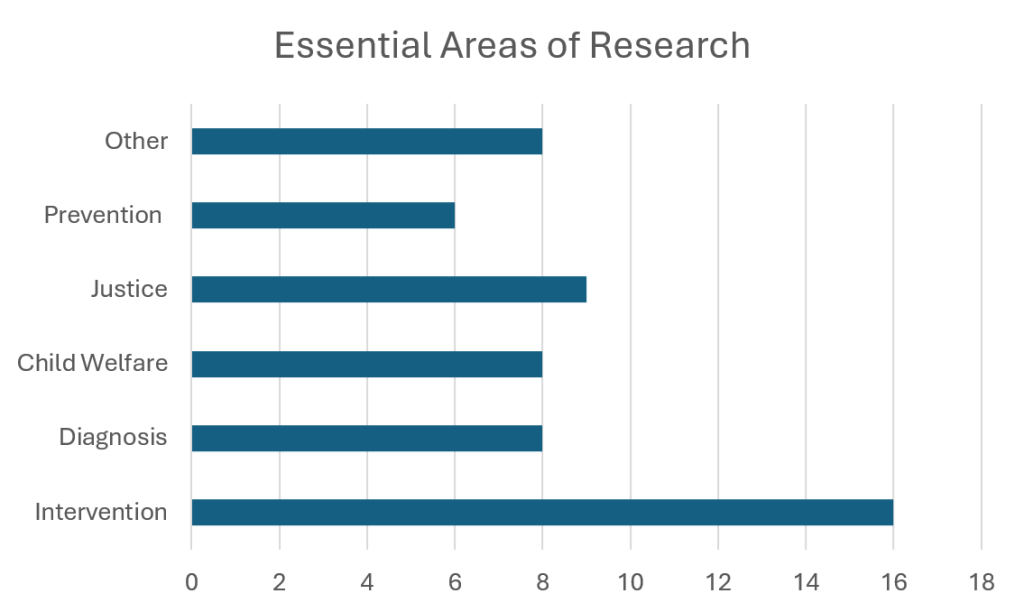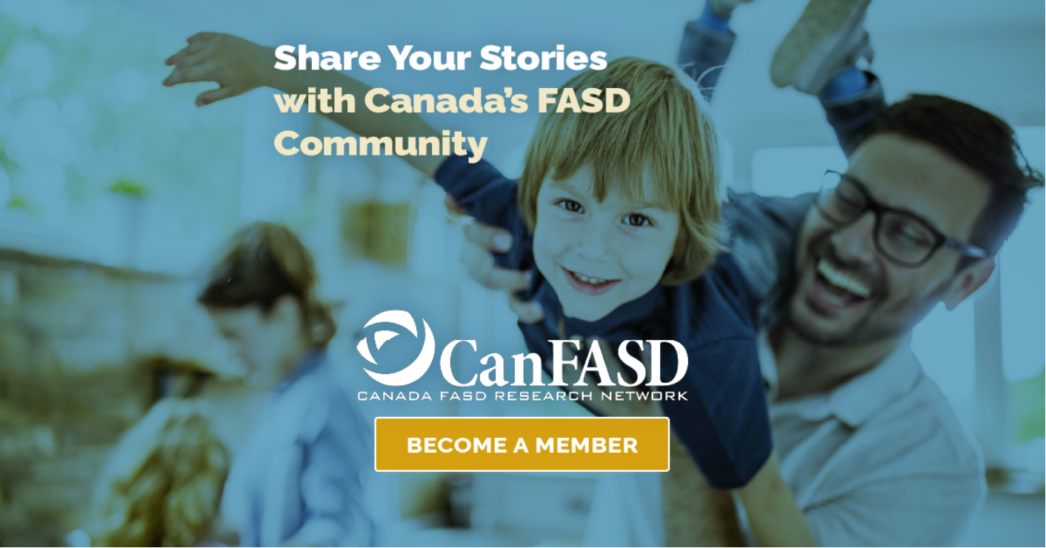Thank you to all of you who took the time to respond to our member priorities survey. Your answers really help us understand where our communities identify gaps, and therefore where CanFASD should focus our future efforts and initiatives.
In total, 19 people responded to our survey this year. The majority of these respondents (84%) had living experience with FASD (i.e. individual with FASD, caregiver, family member, or partner). This isn’t a large number of responses, but it does give us a snapshot of what our members are perceived benefits of membership and areas where we can add more value.
Successes and Challenges
In terms of the biggest challenges these members face, a lack of supports and services (52%) and a lack of awareness (47%) were paramount. Secondarily was stigma and misinformation about the disability (32%) and a lack of funding (16%). Challenge areas varied widely among participants and included assessment and diagnosis, prevention, housing, mental health and addictions, employment, sleep, and transitioning to adulthood.
The majority (74%) said they had the skills needed to address the challenges, but most said they needed some help.
“Knowledge and skills but often not the energy.”
“Yes, but often not the power to change their expectations.”
Those that said they don’t have the skills (16%) pointed to the systemic nature of these challenges and that they aren’t things that the respondents themselves can fix.
Stories of Success
But our members also shared some wonderful success stories with us:
“When I see my daughter feel success and pride in her new job.”
“Applying the principles of trying differently not harder and releasing things that cannot be controlled.”
“There is a push to recognize strengths as well as challenges, and these conversations are so important because they shape the research we look at, how clinicians talk to parents, how teachers/health care workers/justice system workers talk about people with FASD and their families.”
Essential Areas of Research
At CanFASD, our work is grouped into five general areas of research: prevention, diagnosis, lifespan intervention, child welfare, and justice. However, we often branch outside of these areas in our work.
We asked members what areas of research were most essential for them. Unsurprisingly (as our respondents were mostly people with living experience) lifespan intervention was number one. The remaining areas of focus are broken down in the chart below. Other areas of focus identified included education, employment, and aging.

Knowledge and Service Gaps
Respondents shared a number of different perceived gaps in knowledge of FASD. Some of the most common mentioned were topics like:
- Aging and FASD – 26%
- Education – 16%
- Diagnosis and screening – 16%
- Mental health and addictions – 16%
- Sexuality and sexual behaviour – 16%
A lot of the current service gaps identified by members were around funding for supports, availability of services, and a lack of FASD-informed services. Our community also identified programs and services that would be important for them to have access to. These included:
- Social and athletic programs for kids and youth with FASD;
- Respite programs for families including funding for families to access respite;
- Mandated FASD training in mental health settings;
- A Canada-wide framework for FASD;
- More screening and diagnostic services to reduce wait times;
- A navigator that helps coordinate and connect families to supports, as well as providing them with resources; and
- Culturally appropriate interventions.
It’s important to note that these services and supports are available in some areas across the country. But they are few and far between and accessibility depends on a bunch of different factors.
Our research, resources, and ongoing work
There are a few things that our members asked about that CanFASD does have some resources on! Below is a selection.
Substance Use
We do have resources related to FASD and substance use, the most recent of these being the Moving Towards FASD-Informed Care in Substance Use Treatment guide and associated online course. There is also a section on substance use in our Mental Health Resource & Practice Guide. Although these resources are meant for service providers, some of the information provided can help families. You are welcome to share these resources with care providers to improve their understanding of substance use and FASD.
Aging and FASD
We got a lot of questions about aging and FASD! The short answer is that we’re working on it. New research from external collaborators is underway and we will use that to inform a future issue paper. It is a hot-button topic in the field, and we’re so excited to have multiple presentations on aging and FASD scheduled for the 2025 Canada FASD Conference.
Diagnosis and Screening
One of our members told us, “We need an evidence-based screening tool that can be used in child welfare, justice, mental health.”
The good news? Research in this area is well-underway. Our incredible Research Leads are working with a team to create screening tools for a variety of fields. Right now, they’re testing out a screening tool for use in the criminal legal system. Here’s a report that gives an overview of the first part of that research project.
Epigenetics
We had an interesting question about the role of fathers in conception. Our prevention team have created a number of resources that give information on the biological considerations and social considerations of the role fathers play in pregnancy. They even have a tip sheet with ideas on what men can do to help in the prevention of FASD.
Sensory Processing and FASD
This is a relatively new area our research staff have been looking into. Just last year we released an issue paper that explores sensory processing and FASD. We also did a series of webinars on the sensory world of people with FASD with support from our Family Advisory Committee.
Therapy and FASD
Our members had questions about therapies that work for individuals with FASD. While each person is unique and approaches shouldn’t be one-sized-fits-all, our Broad Approaches to Psychotherapy Issue Paper shares some insights about therapies that can make a difference.
Parenting with FASD
The experiences of people with FASD when parenting their children is important area of focus in research. We wrote an issue paper about the needs, challenges, and opportunities in this area in 2020. Some new research has been published on outcomes and experiences in the child intervention system since our issue paper, but there are still significant knowledge gaps around parenting with FASD. Our CARE survey is helping to answer some of these questions – and we are still recruiting for this project if you’re interested in participating!
Towards Healthy Outcomes
One of our members expressed the need for “general understanding and knowledge of what works for folks with FASD.” The best resource we have for this is our updated Towards Healthy Outcomes framework. The goal of this guide is to continue highlighting ways we might walk with individuals with FASD in pursuit of healthy outcomes, at individual, family, community, and systems. It gives some great information and resources to support different domains across different life stages. Identifying Best Practices is a great course that puts all this into context for professionals.
Talk to us!
Are these resources helpful? Are things missing? We don’t have all the answers, but we’re working on it! If you have any questions about FASD that you want answered, send us a message. We may not be able to answer all your questions, but we will do our best to point you in the right direction. Who knows, your questions may help inform future research projects in that area!

